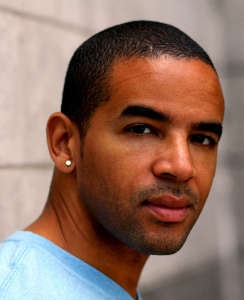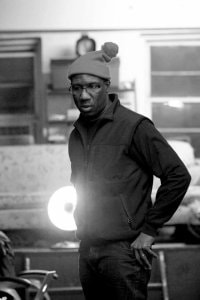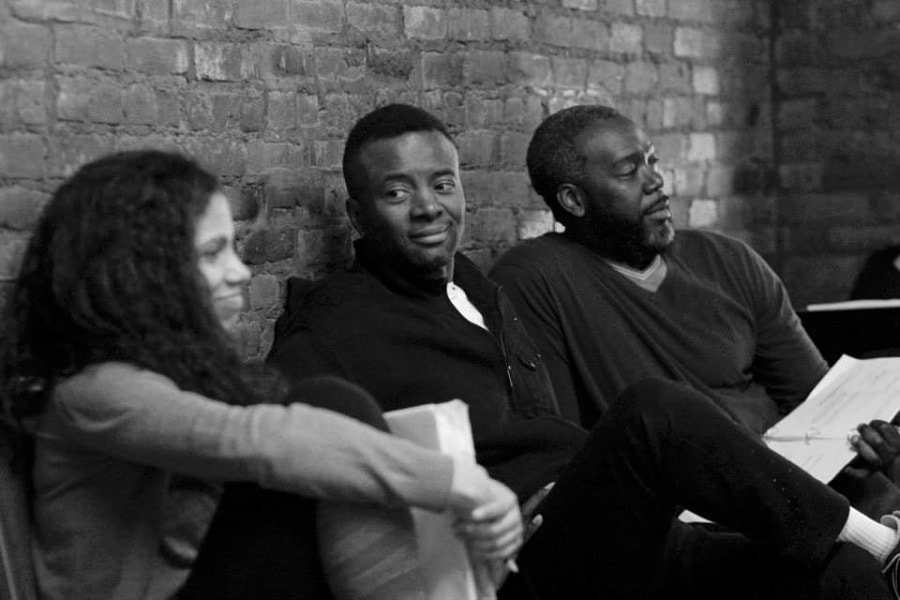NEW YORK CITY: In 2009, playwright Kelley Girod had been out of school for just over a year. A 2008 graduate of Columbia’s MFA playwriting program, she felt underrepresented and disheartened by the work she was seeing onstage, compared to what she and her friends were creating.
With few outlets available to her and other young African-American playwrights to present their work, Girod created her own, The Fire This Time Festival, through the Horse Trade Theater Group, with a goal of serving as a platform for up-and-coming black playwrights and their work.
“All of us felt frustrated and limited to what we could write compared to what was being produced,” says Girod, who is now the festival’s executive producer. “The festival is a series of plays and public readings, but the readings provide a way for our playwrights to stay in the community.”

The Fire This Time Festival began simply in 2009 with one day of shows in a theatre that sat just 40 people. It has grown gradually since then, with the 2015 festival running just under three weeks, Jan. 19-Feb. 8. Programming includes one full-length play, Nathan Yungerberg’s Pousada, Azul, and seven 10-minute plays.
The Horse Trade Theater Group acts as a sort of family unit, and the festival is run in a similar way. The work chosen for each year’s festival must first be nominated by playwrights from the previous season, then voted on. This is how the festival continues to both keep some continuity and feature new playwrights, Girod said. Indeed, following their festival appearances, some of the past featured playwrights, such as Katori Hall (The Mountaintop, Hurt Village) and Dominique Morisseau (Detroit ’67, Sunset Baby), have received national and international attention for their work.
“Every year, I meet a playwright I’ve never met before whose work I have never heard of,” Girod said. “For a lot of our new playwrights, this is their first show. Then after that, they’re all over the place.”
Over the past six years, the subject matter has varied greatly from season to season. This can be attributed to the playwrights receiving very little interference when it comes to the issues or subjects that are covered. This relative freedom has allowed stories from all types to be seen on stage: Girod said that the first year featured a number of plays about gay black men; the next year, there was a Charlotte Brontë show.

Despite the recent national headlines about race and violence, love seems to be a recurring theme in this year’s festival offerings. Yungerberg’s Pousada, Azul, directed by Russell G. Jones, is billed as a story of rebirth, transformation and love among African-American expats in Salvador, Brazil. And the 10-minute plays include A Military Habit by Aziza Barnes, The Sandbox by Azure D. Osborne-Lee, Not in the Room by Daaimah Mubashshir, Easy to Fall in Love by Larry Powell, Coal Run Road by Julienne Hairston, Dolphins and Sharks by James A. Tyler and The Marriage of Zoltar, or Rollercoaster: Your Love by Rod Gailes OBC.
Still, Girod said, many of the plays this year “have stories that very much depict the issues, and will definitely hit home for some people. We keep asking ourselves how do we make our art move? We are working on how we can deal with these issues year-round.”
The work featured in The Fire This Time festival is only half of the experience; festivalgoers make up the other half, and they are not shy about sharing their opinions during a show. Girod said that one of her favorite things to do is to sit in the back of the theatre just to listen to their reactions.
“Our audience is so vocal, so there is a huge call and response from them,” she said. “They don’t hold back, so now, when I go see other shows, it’s weird to me when I see people holding back or are over-composed.”
Besides wanting a place where new African-American dramatists could showcase their work, The Fire This Time Festival is a place where diverse perspectives can be explored. After six years, Girod said she simply wants to add on to what the gathering has already been doing—and keep growing.
“I want us to be able to travel outside of New York and give more opportunities to our playwrights than other places have,” she said. “And after people see our shows, I want them to walk away thinking about what they saw, and say, ‘This is what the black theatre experience should be.’”


